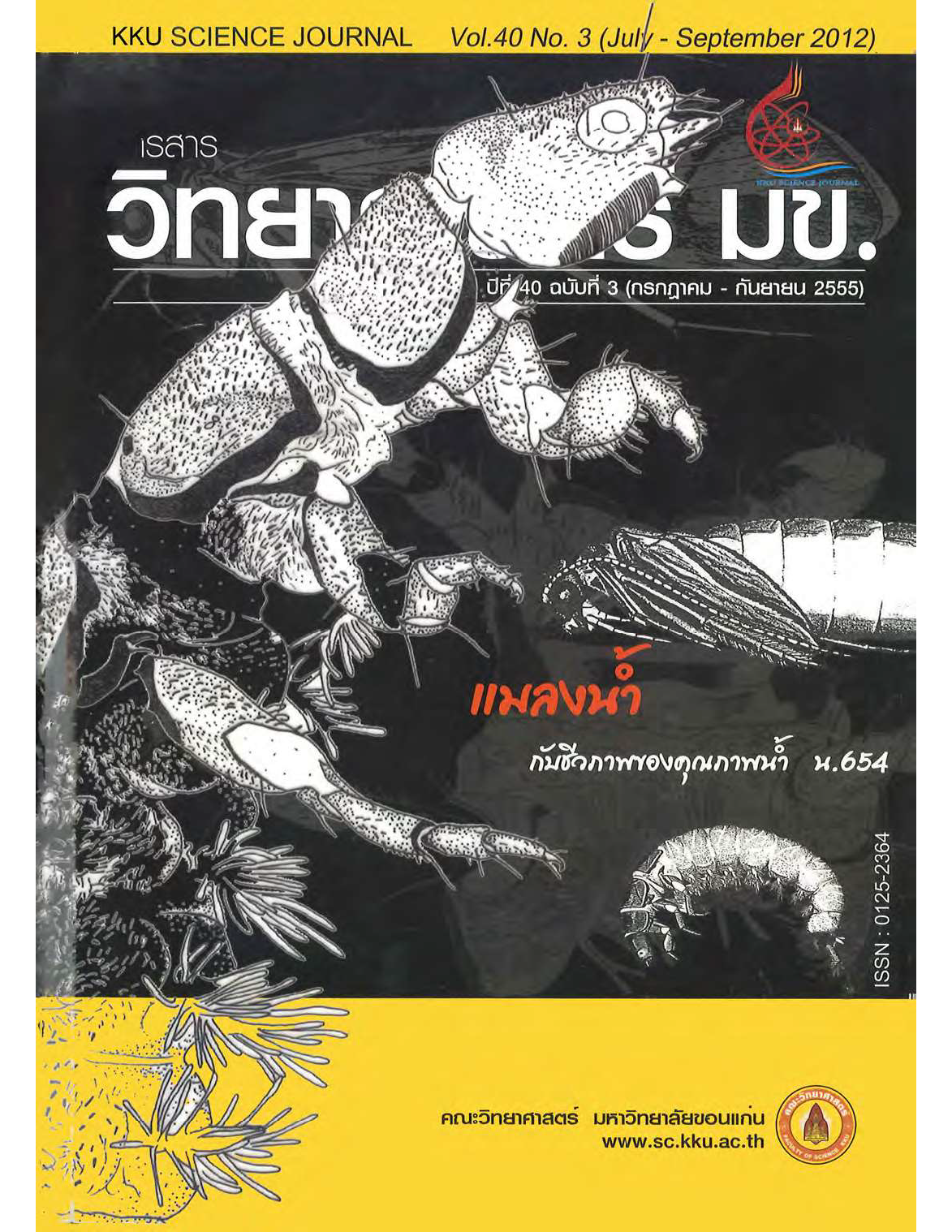Chemical Composition of Goat Milk and Effect of Spray Drying Conditions on Qualities of Goat Milk Powder
Main Article Content
Abstract
This research studied on chemical composition content of raw goat milk and optimal condition of spray dried goat milk process; total solid content of raw milk and air outlet temperatures. The result indicated that the contents of fat, protein and total solid of raw goat milk from goat farm in Yala province were 3.45±0.04, 3.95±0.01 and 12.53±0.15%, respectively. It contained 114.93 mg calcium/100 g milk and 98.62 mg phosphorus/100 g milk, short and medium chain fatty acids were 25.20% of total fatty acid and had high content of β-casein 77.40% of total casein protein. Producing of spray dried goat milk conducted by using 2×3 Factorial in Complete Randomized Design studied on effects of two different total solid contents of raw milk (TS); 12 and 24% and three different air outlet temperatures (Tout) 80, 90 and 100 ºC with fixed air inlet temperatures at 180 ºC. The results indicated that the Tout and TS had significant effect on some physical properties of goat milk powder. Increasing of Tout and TS resulted in decreased moisture content and surface free fat, reduced wetting time and increased dispersibility of goat milk powder. The optimal condition in this study has been obtained at Tout 100 ºC with 24% TS. The goat milk powder from this condition had moisture content 2.69%, lowest wetting time at 22.33 s and highest dispersibility of 76.65%. Microstructure of goat milk powder determined by using a scanning electron microscope (SEM) revealed that at 24% TS, size of milk powders were smaller and less uniform than those performed by using 12% TS. Milk powders obtained at Tout 100 ºC had less relatively uniform than those obtained at 80 ºC and showed partially cracking and hole at the powder surface.
Article Details

This work is licensed under a Creative Commons Attribution-NonCommercial-NoDerivatives 4.0 International License.


